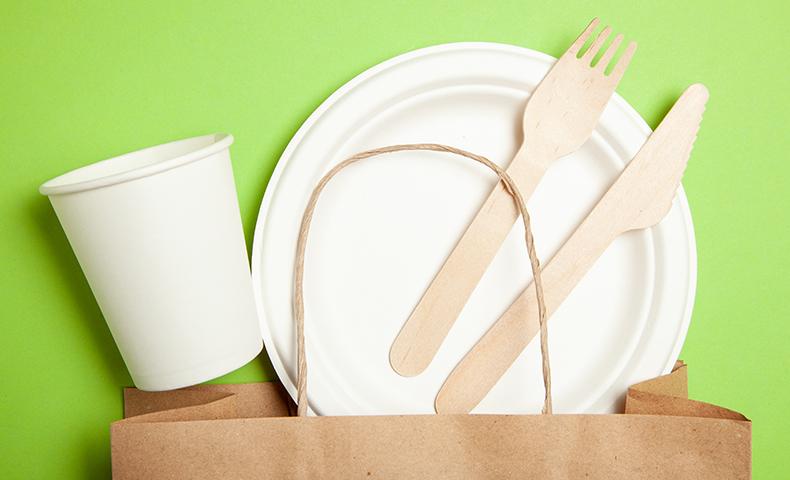Anti-Plastic Legislation Creates Opportunities for Bioalternatives

Originally published on Domtar
A growing number of actual and proposed bans on single-use plastic products, such as grocery bags, straws and water bottles, are feeding a worldwide appetite for bioalternatives, such as reusable, refillable and/or recyclable products and packaging. As a result, we’re seeing renewed markets for existing paper-based products and new opportunities for innovation in plant-based biomaterials.
“Could you have imagined we would ever see a day when plastic straws were being banned?” asked Mark DeAndrea, vice president and business unit leader for Domtar’s Biomaterials Innovation team in a recent article. “Lignin is an ideal polymer to replace plastic, and someday we might see all plastics banned. When you hear from automotive companies, plastic companies and chemical companies that they want to supplement or replace their petroleum feedstocks, you quickly realize that this might be just the tip of the iceberg.”
Global Attitude Toward Plastic
Since DeAndrea made that statement, more countries and cities have made the move to ban not only plastic bags, bottles and straws but also plates, cutlery, cups, packaging — even cling film. The goal is to replace them with reusable glass, metal, fabric or biodegradable bioalternatives like paper or plant-based materials such as cellulose and lignin.
Take a look at some of the latest global efforts to reduce our dependency on plastic:
- Canada announced in June that it plans to ban single-use plastics starting in 2021.
- Mexico City’s ban on plastic bags, utensils and other disposable plastics will go into effect next year.
- New York, California and Hawaii, as well as several major U.S. cities, have banned plastic bags, joining 127 countries that have similar bans or regulations already in place.
- Schools in the United Kingdom will eliminate all single-use plastics, including cling film, by 2022.
- India, one of the world’s most populated countries, will ban all single-use plastics by 2022.
- The European Parliament voted to ban single-use plastic cutlery, straws, stirrers, cotton buds, cups and more in a sweeping initiative that will include all European Union member states.
Perhaps in response to legislation designed to reduce or eliminate the use of plastic, many companies are finding more sustainable ways to package their goods using glass, metal and other bioalternatives.
For example, more than 40 major brands, from Tide and Crest to Tropicana and Häagen-Dazs, have partnered with Loop, a refillable packaging program. Consumers place empty containers in a special recycling bin and schedule a free pickup when the bin is full. Loop cleans and refills the containers, which can then be resold. The zero-waste platform focuses on creating a circular economy by “reducing the number of steps to get our products from useless to useful again.”
Consumer Demand for Bioalternatives
Refillable containers and reusable goods are a great idea for products that we use on a daily basis in our home, but they aren’t always practical for use while we’re out and about.
With the global move away from single-use plastics, consumers are demanding eco-friendly options for their morning coffee, grocery shopping and meals on the go. They are looking for products that won’t end up in our landfills or, worse yet, our oceans. Biobased and biocomposite materials, such as paper cups, straws, bags and food packaging, are recyclable and/or biodegradable, making it easy for companies and consumers to move away from plastics. These materials are also suitable alternatives for other plastic products, such as disposable cutlery and molded or extruded trays and containers, that can’t be replaced with paper.
Our Biomaterials Innovation team is working with Fortune 500 industry partners to develop new uses for tree-based polymers and compounds. One of the most promising biobased polymers is lignin, which is an excellent replacement for petroleum-based plastics and adhesives. Using several of our newly patented processes, we can modify our BioChoice lignin and pelletize, compound and extrude it using the same equipment and a similar process used for producing petroleum-based plastics. This makes it the ideal polymer to substitute for plastics in a broad range of existing consumer products.
The future of single-use plastic looks grim, but the opportunity is ripe for glass, metal and biocomposites, such as plant-based polymers and materials like lignin and, of course, paper — the original responsible packaging material.

